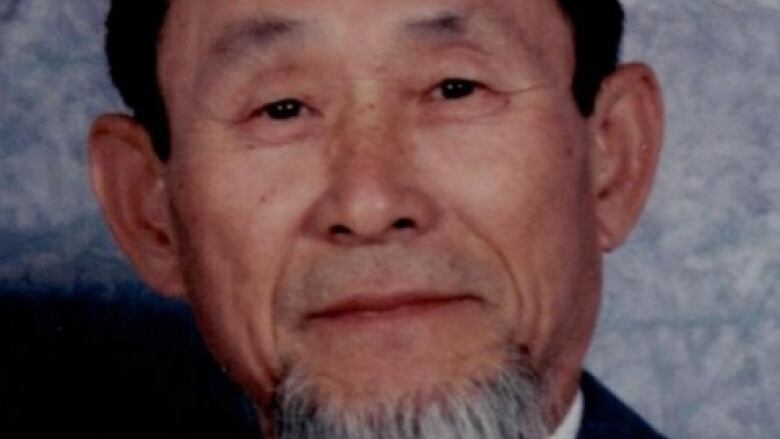Father of first Korean family to settle in Calgary leaves legacy of helping others
'He never felt like he needed to show off. He was willing to help people, regardless of what the task was.'

The patriarch of what's believed to be the first Korean family to immigrate to Calgary died last month, leaving a legacy of helping others and pushing the importance of education.
Chang Young Kim passed away peacefully Jan. 30. His funeral was held Saturday.
Kim moved his family to Calgary in 1965 to work as a physics professor at the University of Alberta's Calgary campus. The school became the University of Calgary a year later.
Kim had left Korea eight years earlier to work towardhis doctorate in Seattle. Once completed, he worked at the Alaska Methodist University in Anchoragebefore moving to Calgary, where he retired in 1992.
Kim home became a community centre
He spoke Japanese, Korean and English fluently and learned German as part of his degree.
One of Kim's daughters says the family's home in Calgary became a community centre of sorts for fellow Korean immigrants.
"All the other families and single people lived in apartments," Diana Kim told CBC News in an interview Sunday.
She said it was a safe place for the newcomers to speak their first language and enjoy authentic Korean food Kim's wife, Sun Bok, would modify based on what was available in grocery stores at the time.
"At the time there were no Superstores or T & T Supermarkets," Diana explained.
"Korean food is quite spicy. When my father first came to North America, he was studying at the University of Washington in Seattle and he found the food so bland. He carried around with him two little containers: one of garlic powder and one of chili powder. He would sprinkle it on all the cafeteria food," she said with a laugh.
Balance between being humble, pride
Despite his education and status as a professor, Diana said he was very down to earth.
"He was a very humble man," she said.
"It was a balance between being humble and being proud. He never felt like he needed to show off. He was willing to help people, regardless of what the task was."
Education was important to Kim.
"My brother, he didn't even want to go to university and my father insisted that he go," Diana said.
Taught his mother to read
"My brother was the oldest and there were three sisters. For the sisters, it was a no-brainer. It was obvious that we were going to go to university, which is interesting because his mother, I don't think she ever attended school. They lived in the country in Korea and it wasn't important to educate women. He actually taught his mother to read so that when he left, she could read his letters."
Kim, despite being from a traditional culture, often would use his privilege to elevate others, his daughter explained.
"When you are sitting down to eat with him, in the hierarchy of things he was the oldest male at the table, and so that meant that people should be serving him. Unfortunately, it is the culture he grew up in, a traditional culture. But he would always make the sure the food was not closest to him, he would push the food to be closer to other people so it would be easier for them. He would try to make other people's lives easier."
Children gave Kim joy
"He said the best times of his life was when he was raising his children and when my sisters gave birth to their children. He just loved playing with them. He was a scientist, so he loved to watch them and see how they reacted to different situations," Diana said.
But helping others seemed to come naturally to him.
"Having more command of the English language than a lot of the immigrants that came, he helped them with legal issues and financial issues."
A friend of Kim's, Jay-Sol Yang, explained it best in his 2014 book, The Promised Land Canaan, which includes a chapter on Kim.
"Dr. Kim became feet for those who needed feet; a mouth for those who have one but could not speak; an ear for those with ears, but could not hear," Yang wrote.
Kim leaves behind his wife of 57 years, Sun Bok Kim, four children and four grandchildren.
- MORE ALBERTA NEWS |Calgary priest skips Sunday church after scoring Super Bowl tickets
- MORE ALBERTA NEWS |Homeless man's death leaves Calgary church to reflect on community, humanity












_(720p).jpg)


 OFFICIAL HD MUSIC VIDEO.jpg)
.jpg)



























































































